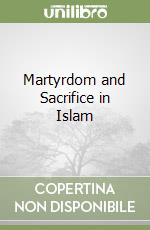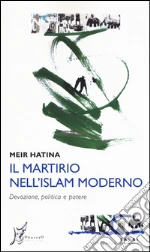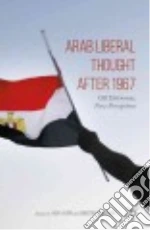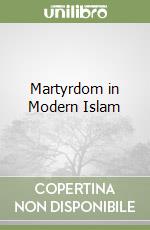 Libri di Meir Hatina su Unilibro.it
)
Libri di Meir Hatina su Unilibro.it
)
|
|
1916 |
 Title :
Martyrdom and Sacrifice in Islam
Title :
Martyrdom and Sacrifice in IslamAuthor: Hatina Meir (EDT), Litvak Meir (EDT) Publisher: Tauris Academic Studies € 130,70
|
|
|
2016 |
 Title :
Il martirio nell'Islam moderno. Devozione, politica e potere
Title :
Il martirio nell'Islam moderno. Devozione, politica e potereAuthor: Hatina Meir Publisher: O Barra O Edizioni Il tema del martirio nell'Islam viene qui inquadrato in un'ampia prospettiva storica che ne contestualizza le componenti ideologiche, simboliche, sociali e politiche, evitando di focalizzare l'attenzione sulle motivazioni personali degli attentatori suicidi, come spesso è accaduto negli studi finora pubblicati. A partire dal XX secolo e fino ai giorni nostri la pratica dell'autosacrificio ha sollevato accese dispute all'interno del mondo islamico, sia sciita sia sunnita. I movimenti più radicali l'hanno adottata come strumento principale del jihad, elevando gli attentatori suicidi al rango di martiri, altri hanno posto vincoli sul suo utilizzo, mentre le correnti più moderate l'hanno condannata da un punto di vista teologico o morale. Meir Hatina esplora i diversi modi di concepire l'autosacrificio seguendone l'evoluzione attraverso i secoli, evidenziando i retaggi della tradizione ebraica, cristiana e di altre culture non islamiche nonché i legami con il contesto sociopolitico contemporaneo. Attingendo a un vasto corpus di fonti di prima mano - cronache, testi giuridici, manifesti ideologici, memorie, testamenti, hadith e fatwa -, oltre che alla più recente letteratura storiografica e sociologica, il libro apre inedite prospettive su uno dei fenomeni più controversi e inquietanti del nostro tempo. € 20,00
Scontato: € 19,00
|
|
|
1915 |
 Title :
Arab Liberal Thought after 1967
Title :
Arab Liberal Thought after 1967Author: Hatina Meir (EDT), Schumann Christoph (EDT) Publisher: Palgrave Macmillan This volume aims at confronting the image of the Middle East as a region that is fraught with totalitarian ideologies, authoritarianism and conflict. It gives voice and space to other, more liberal and adaptive narratives and discourses that endorse the right to dissent, question the status quo, and offer alternative visions for society. The volume deals with a variety of themes, covering ideology, politics, society, and state in the post-1967 Arab landscape, while also providing comparative perspectives from Turkey and Israel. This timely study highlights the key themes of freedom and democracy championed in the Arab Spring uprisings as central to Arab liberal thought. € 93,60
|
|
|
1914 |
 Title :
Martyrdom in Modern Islam
Title :
Martyrdom in Modern IslamAuthor: Hatina Meir Publisher: Cambridge Univ Pr 'The Islamic resurgence in modern times has received extensive treatment in scholarly literature. Most of this literature, however, deals with the concept of jihad and disputes between radicals and their rivals over theological and political issues, and far less with martyrdom and death. Moreover, studies that do address the issue of martyrdom focus mainly on 'suicide' attacks - a phenomenon of the late twentieth century and onward - without sufficiently placing them within a historical perspective or using an integrative approach to illuminate their political, social, and symbolic features. This book fills these lacunae by tracing the evolving Islamic perceptions of martyrdom, its political and symbolic functions, and its use of past legacies in both Sunni and Shi'i milieus, with comparative references to Judaism, Christianity, and other non-Islamic domains. Based on wide-ranging primary sources, along with historical and sociological literature, the study provides an in-depth analysis of modern Islamicmartyrdom and its various interpretations while also evaluating the historical realities in which such interpretations were molded and debated, positing martyrdom as a vital component of contemporary identity politics and power struggles'-- € 87,30
|